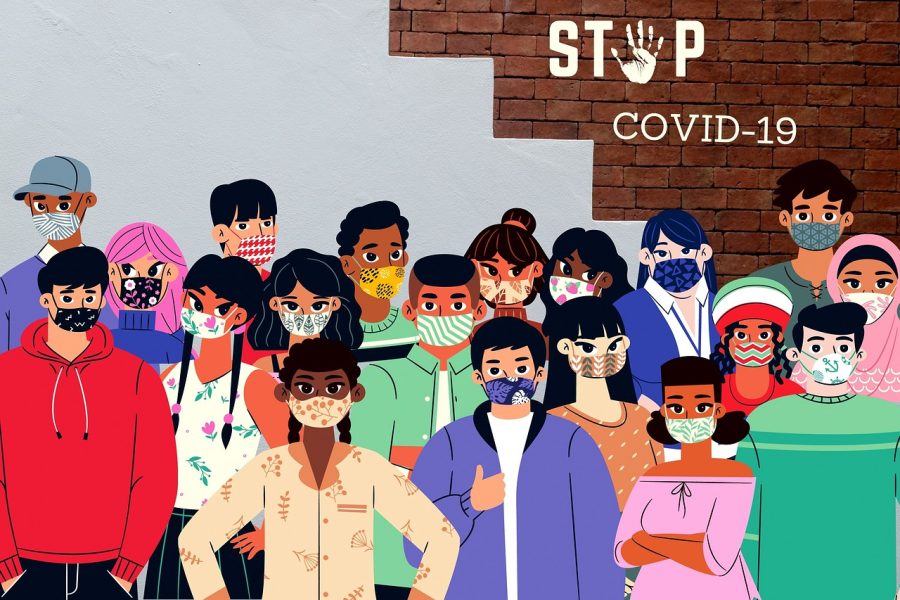Baruch should not reinstitute mandates in response to omicron variant
May 15, 2022
As the omicron variant spreads, Baruch should raise awareness about the increase in COVID-19 cases and prevention by urging students to mask up and follow social distancing rules in crowded areas to avoid another possible outbreak.
Though the pandemic isn’t quite over, the widespread reinstatement of extreme precautions is not the resolution most desire.
Baruch should do everything short of reinstituting mandates, such as alerting students about rising cases and advisingthem to follow guidelines.
The Centers for Disease Control and Prevention is pushing for masks in public indoor settings across 36 counties in upstate New York, due to increasing rates of COVID-19 infection. The high alert level in those areas suggests a, “high level of severe disease.”
New York City’s COVID-19 alert jumped from “low” to “medium” on May 2, indicating a heightened risk state-wide, as daily cases increased by an average of 200% in a month.
“Currently, the omicron variant accounts for at least 99% of tested cases in NYC,” the city website reported.
Officials are not alarmed by the variant, but still plan to increase the number of testing sites as distribute about six million free at-home testing kits.
Health Commissioner Dr. Ashwin Vasan and New York Mayor Eric Adams told CBS they do not plan to reinstate mask and vaccine mandates. They urged the public to take necessary precautions as they are not willing to risk closing the city again.
“So our message to New Yorkers is go about your lives. Take additional precautions as you do so. Wear a mask indoors. Get vaccinated and boosted if you’re eligible. Get tested frequently, especially when going to gatherings,” Vasan said. “If you are high risk, if you are elderly, if you have a pre-existing condition, if you’re on active treatment for any other medical conditions, please take additional precautions.”
Health experts predict we won’t see a surge in hospitalizations similar to past years due to high vaccination rates. According to the World Health Organization, “There was no reported difference in severity between BA.2 and BA.1.”
“I don’t think this is going to be like the prior omicron surge,” Columbia University Epidemiology Professor Dr. Wafaa El-Sadr told The New York Times.
Though risk of serious infection is low, many remain concerned about the currently high level of cases.
“Spread of the BA.2 subvariant could extend the winter surge,” Public health policy expert at CUNY and executive director of the research group Public Health Informatics, Computational, and Operations Research Bruce Y. Lee said. PHICOR assists in public health decisions by “developing and utilizing computational approaches, methods, models, and tools.”
In this climate of confusion, the public has conflicting views on the city’s response toward the subvariant.
Some believe that, after two years of isolation and three rounds or more of vaccines, they deserve eased restrictions. These individuals feel sufficiently protected against the new subvariant. Others areskeptical about the city’s lack of caution in responding to it.
Students are returning to in-person gatherings and trying to adjust to a new, uncertain normal. It’s not fair to rip them away from it once more by reinstating mandates. However, Baruch should still do its part in stressing precautions and stopping the spread.







